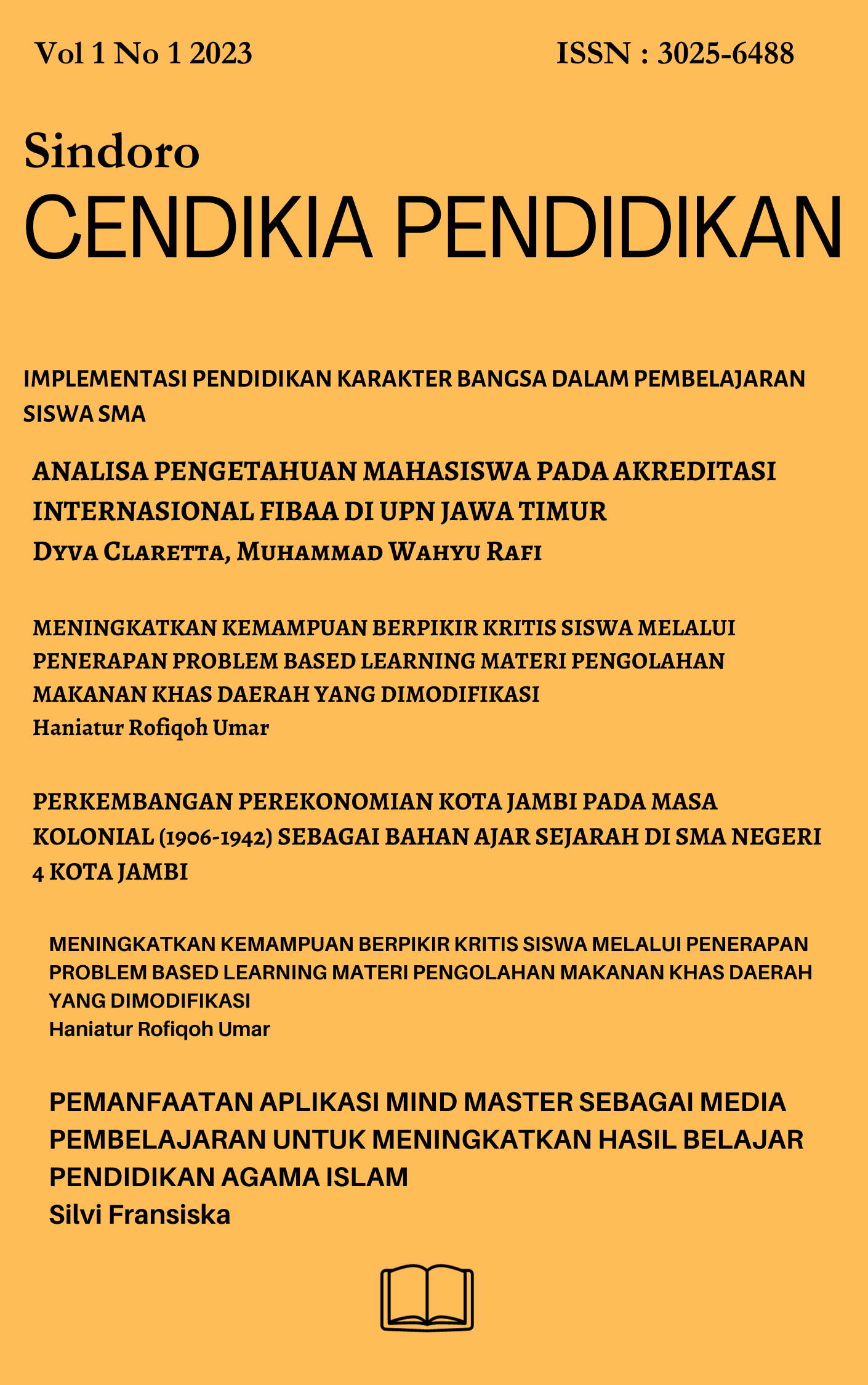ANALISIS KETERAMPILAN BERPIKIR TINGKAT TINGGI DALAM PEMBELAJARAN TEMATIK KELAS VI DI SEKOLAH DASAR
Main Article Content
Abstract
Penelitian ini dilatarbelakangi oleh rendahnya kemampuan berpikir kritis siswa Indonesia berdasarkan hasil studi PISA, serta kebutuhan mendesak akan integrasi keterampilan berpikir tingkat tinggi (Higher Order Thinking Skills/HOTS) dalam pembelajaran abad ke-21. Tujuan dari penelitian ini adalah untuk menganalisis sejauh mana HOTS telah diterapkan dalam pembelajaran tematik kelas VI di SD Negeri 023 Muara Mahat Baru, serta mengidentifikasi faktor pendukung dan penghambatnya. Penelitian ini menggunakan pendekatan kualitatif deskriptif dengan teknik pengumpulan data melalui observasi partisipatif, wawancara mendalam, dan analisis dokumen pembelajaran. Hasil penelitian menunjukkan bahwa guru telah berupaya mengintegrasikan strategi pembelajaran yang mendukung HOTS, seperti penggunaan pertanyaan terbuka, tugas berbasis proyek, dan diskusi kelompok. Namun, implementasi penilaian autentik dan penggunaan model pembelajaran inovatif seperti Problem Based Learning masih belum optimal. Oleh karena itu, peningkatan pemahaman dan kompetensi guru dalam menerapkan strategi dan evaluasi berbasis HOTS menjadi kunci penting dalam meningkatkan kualitas pembelajaran tematik yang berorientasi pada pengembangan keterampilan abad ke-21.
The 21st century demands a shift in education from rote memorization to the development of Higher Order Thinking Skills (HOTS), particularly at the elementary level. This study aims to analyze the integration of HOTS in thematic learning in Grade VI at SD Negeri 023 Muara Mahat Baru, Kampar Regency. Using a qualitative descriptive approach, data were collected through participatory observation, in-depth interviews with teachers, students, and the principal, as well as documentation analysis of lesson plans, student worksheets, and evaluation tools. The findings show that teachers have begun to implement HOTS-oriented strategies, such as open-ended questioning and product-based tasks. However, challenges remain, especially in the area of authentic assessment, where evaluation methods still predominantly rely on recall-based multiple-choice questions. While the lesson plans and learning activities partly reflect the objectives of HOTS, the full implementation, including the use of innovative models like Problem Based Learning (PBL) or Project Based Learning (PjBL), is still limited. The study concludes that although progress has been made in integrating HOTS in thematic instruction, continuous professional development and improved assessment strategies are needed to ensure effective and consistent application in primary education.
Article Details
Section
This work is licensed under a Creative Commons Attribution-ShareAlike 4.0 International License.

